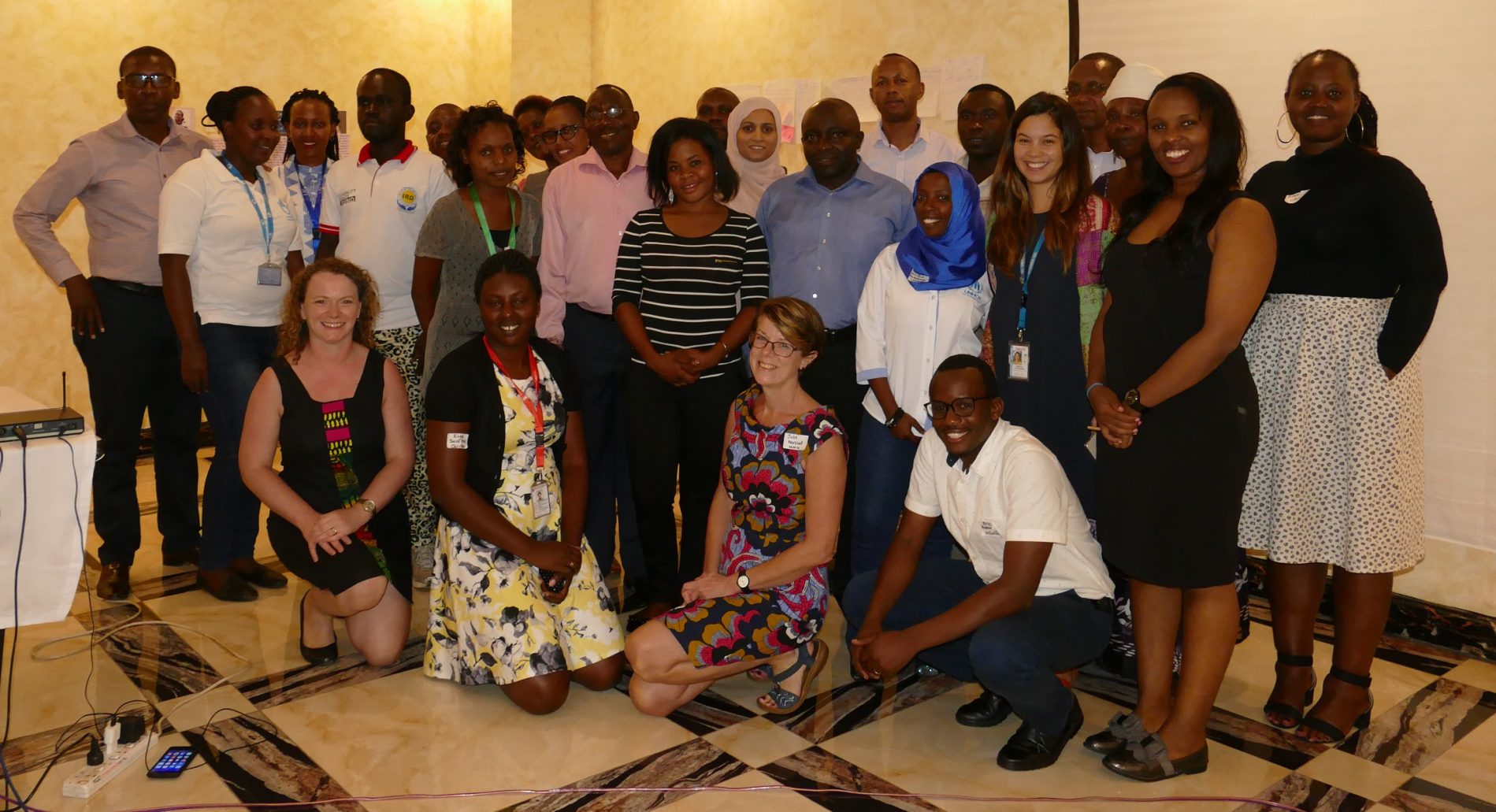Shaping the future: Our strategy for research and innovation in humanitarian response.

Shaping the future: Our strategy for research and innovation in humanitarian response.


Refugees with communication disability and their carers tell us what they need to realise their sexual and reproductive health rights, and protect themselves from violence and abuse.
In this, our final blog, we will talk about the synthesis of our data and a national stakeholder workshop, where a wide range of participants responded to our findings on access to sexual and reproductive health education (SRHE), and sexual and gender-based violence (SGBV) protection for refugees with communication disability (CD); and started to think about how things might be changed.
Following our consultation focus groups with SGBV, SRHE and disability service providers at national and local levels (see blog 2 – The Voices of Experience), and our interviews with refugees with CD and their carers; we analysed the data, using qualitative content and thematic analysis techniques. We hope that the findings accurately reflect the experiences and opinions of this group of refugees with CD in Rwanda, in relation to SRH and SGBV service access.
The findings highlight the challenges refugees with CD and their carers face in realising their sexual and reproductive health rights as individuals, and in protecting themselves from violence and abuse. They also illustrate the challenges that service providers face in responding effectively to the needs of refugees with CD, and the responsibilities carers face in looking after their family member with communication disability, often with little or no support.
We presented this information, along with findings from our first project in 2016 on risk to SGBV and a desk literature review, at a stakeholder workshop in Kigali, attended by refugees with CD and carers, service providers, government agencies and other relevant agencies.
In summary, the service providers we met with talked around four themes: currently available SRH/SGBV services; the vulnerability of refugees with CD; CD itself; and improving service provision for refugees with CD.
Service providers described how:
Refugees with CD and their carers (some of whom were survivors, or carers of survivors, of SGBV) talked about three main themes: living with a CD; services and how they are experienced; and needs and wishes. Service users described how:
In order to frame the situation in Rwanda in a global context, we also carried out a desk-based literature review on access to sexual and reproductive health education and services for refugees with CD. This comprised peer-reviewed and ‘grey’ literature from academic and open-web sources, according to a set of inclusion/exclusion criteria. We considered global literature on SRHE access for people with CD, and specific information on this in humanitarian contexts. Literature contained information about the current situation on access to SRHE for people with CD, the experiences and perspectives of people with CD, examples of good practice and recommendations for improving SRHE access for people with CD. In summary, results showed that:
Stakeholders at the workshop were presented with the consultation and literature review findings and invited to comment, based on their experiences. They agreed that the findings were commensurate with their experiences as service providers and service users and that action is necessary to ensure refugees with CD are able to access SRHE, realise their sexual and reproductive health rights independently, are protected from SGBV, and able to access support services if and when required, on an equitable basis with others in their community.
Stakeholders committed to taking this information to their organisations, and working with MMU, UNHCR and Communicability Global in the future, to improve the situation. In order to do this, the participants worked with us to come up with a mutually agreed ‘problem statement’ and ‘challenge brief’, as suggested in the new Humanitarian Innovation Guide. This helped the group to envisage the change we want to see, and think about the possible innovative strategies for achieving it. Participants agreed that, for real change to occur, a long-term and multi-dimensional approach to the problem is required. (Videos from the workshop can be seen on Twitter through the hashtag #SRHERefugeesComDis.)
This may consist of strategies such as changing community attitudes and beliefs around disability, improving service provider knowledge and skills on interacting with people with CD, improving resources and information for service users, and empowering refugees with CD to be visible, heard and valued.
We look forward to taking our findings through to the planning stage of the next phase of this project in 2019, when we hope to be able to develop and test some solutions to the problems identified, together with refugees with CD, their carers and service providers in Rwanda.

 Please upgrade your browser
Please upgrade your browser
You are seeing this because you are using a browser that is not supported. The Elrha website is built using modern technology and standards. We recommend upgrading your browser with one of the following to properly view our website:
Windows MacPlease note that this is not an exhaustive list of browsers. We also do not intend to recommend a particular manufacturer's browser over another's; only to suggest upgrading to a browser version that is compliant with current standards to give you the best and most secure browsing experience.